Animals
-
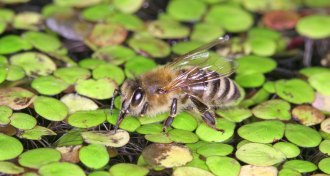 Animals
AnimalsTo douse hot hives, honeybee colonies launch water squadrons
The whole superorganism of a honeybee colony has sophisticated ways of cooling down.
By Susan Milius -
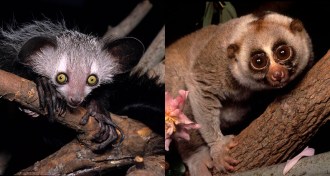 Animals
AnimalsSome primates prefer nectar with a bigger alcohol kick
Aye-ayes and slow lorises may be able to discern the alcohol content of boozy nectar and go for more potent drinks.
-
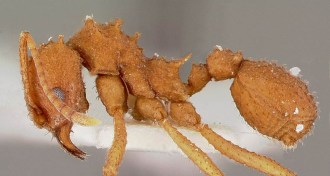 Animals
AnimalsTiny ants move a ton of soil
For the first time, scientists have quantified how much soil ants move underground.
-
 Genetics
GeneticsHerbicide no match for fruit flies’ gut microbes
Friendly gut bacteria team up to break down herbicide that might otherwise harm fruit flies.
-
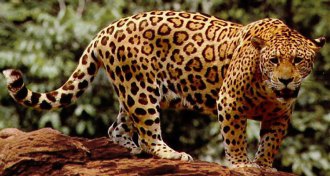 Animals
AnimalsFor jaguars, armored prey is no obstacle
With big heads, thick teeth and strong muscles, jaguars have evolved to take on dangerous prey, often animals covered with thick armor.
-
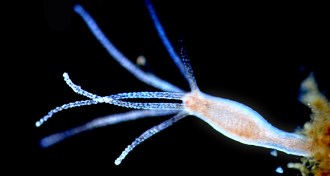 Animals
AnimalsOrganisms age in myriad ways — and some might not even bother
There is great variety in how animals and plants deteriorate (or don’t) over time.
By Susan Milius -
 Animals
AnimalsReaders mesmerized by ‘Strange visions’
Animal vision, ice-making microbes, brain maps and more reader feedback.
-
 Animals
AnimalsWhat animals’ life spans can tell us about how people age
The animal world can offer insights into human longevity.
-
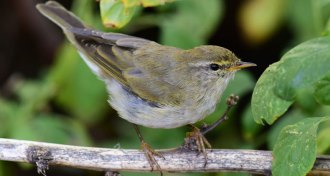 Animals
AnimalsWhen bird populations shrink, females fly away
In small and shrinking populations of willow warblers, males outnumber females. That’s because girls choose to join bigger groups, a new study finds.
-
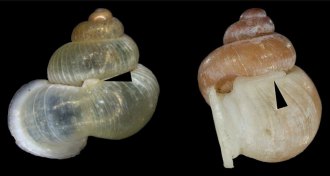 Animals
AnimalsHow snails breathe through snorkels on land
Shells with a tube counterintuitively sealed at the end have hidden ways to let Asian snails snorkel while sealed in their shells.
By Susan Milius -
 Animals
AnimalsHow snails breathe through snorkels on land
Shells with a tube counterintuitively sealed at the end have hidden ways to let Asian snails snorkel while sealed in their shells.
By Susan Milius -
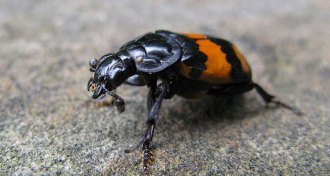 Animals
AnimalsBeetles that battle make better moms than ones that never fight
Female burying beetles that have to fight before reproducing spend more time caring for offspring than beetles with no fighting experience, a new study finds.